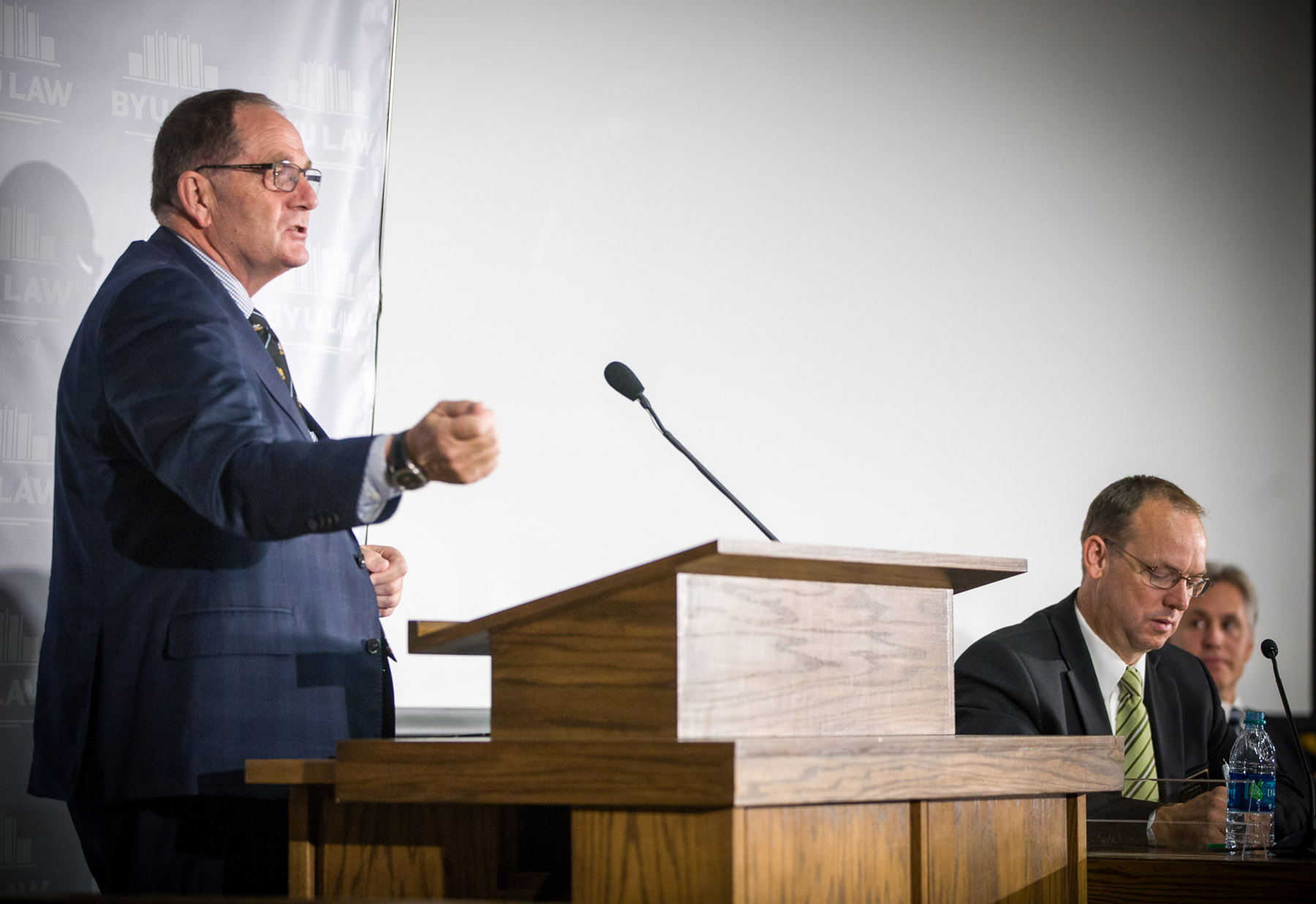Symposium 2016: Canada and New Zealand

by Tanner Bean
The Canada and New Zealand breakout session held on Monday, October 3, 2016 was moderated by David H. Moore, Associate Dean of Research and Academic Affairs of the J. Reuben Clark Law School at Brigham Young University. The session featured panelists John Joseph Borrows and Chester James Borrows.
John Joseph Borrows is a distinguished Canadian scholar and Canada Research Chair in Indigenous Law at the University of Victoria Law School. During his presentation, he explained the wrongs committed against the indigenous peoples of Canada. Specifically, Borrows spoke of the program of Canadian Residential Schools—schools intentionally designed to remove indigenous children from their tribes, ideas, religions, and cultures and to indoctrinate them with western culture. Because these schools were operated by a great many of religious organizations, often this indoctrination involved Christian values.
Years after these schools were disbanded, the Supreme Court of Canada denounced the practice as “cultural genocide” when deciding a class action lawsuit of indigenous people who passed through these residential schools. Borrows explained the settlement agreement reached in that case. One part of the settlement agreement required churches to issue formal apologies, statements of truth and reconciliation, and dedications to enriching and respecting indigenous cultures. Many churches have stepped forward and done so. Borrows hoped that these actions by the churches will in some way serve as recompense for the denial of cultural and religious liberties that indigenous Canadians experienced during that period.
Chester James Borrows is the Deputy Speaker of the House of Representatives of the New Zealand Parliament. His presentation focused on a similar deprivation of cultural and religious liberties, but of New Zealand’s Mauri people. He spoke of the Mauri people’s rich culture and religion that was quickly supplanted by European colonists and their Christian faith. Borrows told of a treaty meant to protect the Mauri people’s religious and cultural heritage, but that was almost completely ignored, until the 1990s.
During that period, Borrows described subtle religious tensions that many in New Zealand simply chose to ignore. However, Borrows explained that New Zealand now has antidiscrimination legislation that mirrors that of most western countries and accords to international human rights agreements. Overall, Borrows stated that to protect religious rights and cultural respect, people cannot be pigeon-holed or treated as commodities.